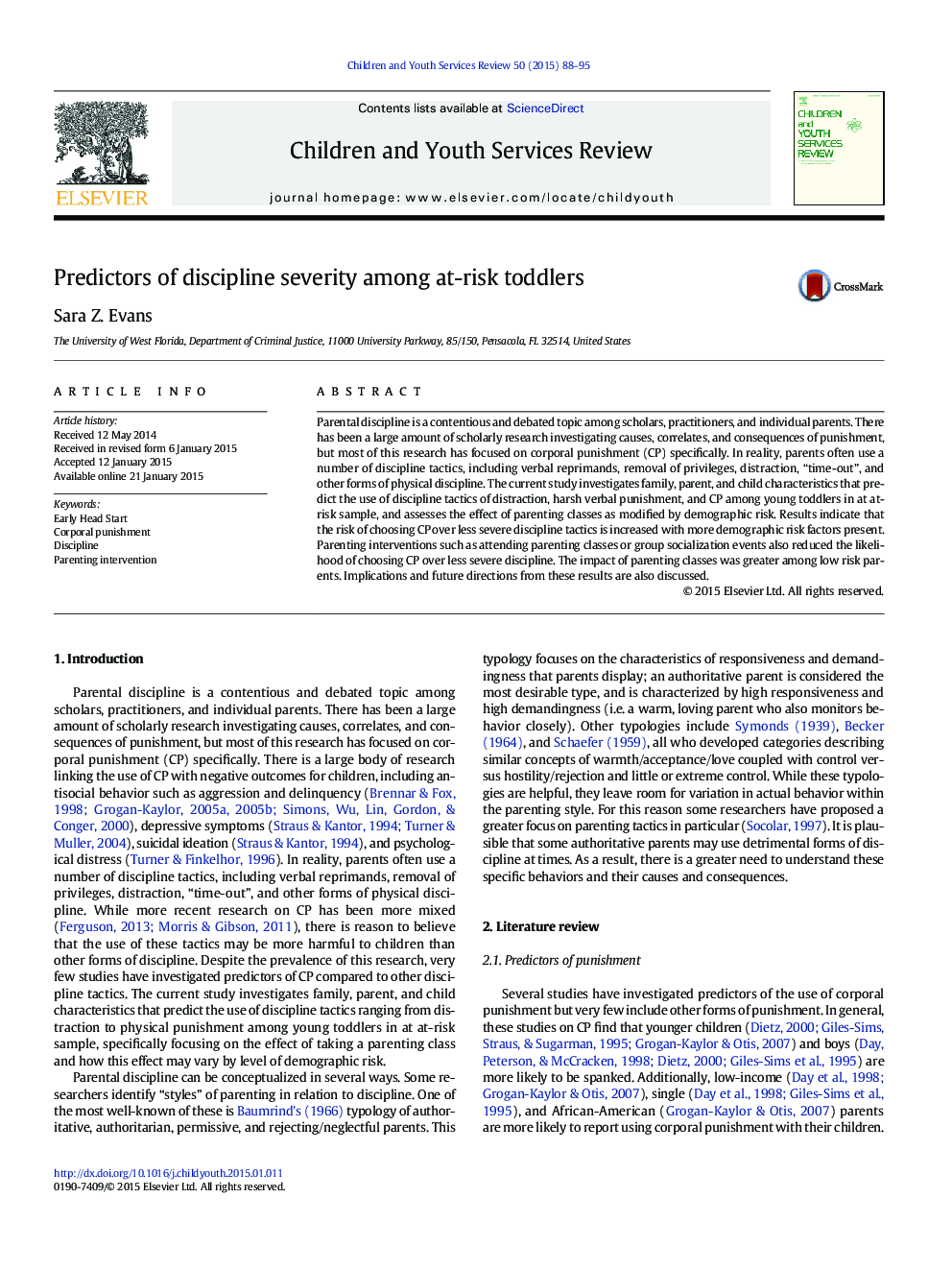| Article ID | Journal | Published Year | Pages | File Type |
|---|---|---|---|---|
| 345990 | Children and Youth Services Review | 2015 | 8 Pages |
•Predictors of using distraction, harsh verbal punishment, and corporal punishment were examined.•Analyses used an at-risk sample of toddlers from the Early Head Start Research and Evaluation study.•Taking a parenting class decreased the likelihood of choosing a more severe discipline.•The impact of parenting classes was greater in low risk families.
Parental discipline is a contentious and debated topic among scholars, practitioners, and individual parents. There has been a large amount of scholarly research investigating causes, correlates, and consequences of punishment, but most of this research has focused on corporal punishment (CP) specifically. In reality, parents often use a number of discipline tactics, including verbal reprimands, removal of privileges, distraction, “time-out”, and other forms of physical discipline. The current study investigates family, parent, and child characteristics that predict the use of discipline tactics of distraction, harsh verbal punishment, and CP among young toddlers in at at-risk sample, and assesses the effect of parenting classes as modified by demographic risk. Results indicate that the risk of choosing CP over less severe discipline tactics is increased with more demographic risk factors present. Parenting interventions such as attending parenting classes or group socialization events also reduced the likelihood of choosing CP over less severe discipline. The impact of parenting classes was greater among low risk parents. Implications and future directions from these results are also discussed.
